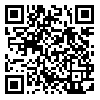Volume 12, Issue 4 (2024)
Health Educ Health Promot 2024, 12(4): 727-734 |
Back to browse issues page
Download citation:
BibTeX | RIS | EndNote | Medlars | ProCite | Reference Manager | RefWorks
Send citation to:



BibTeX | RIS | EndNote | Medlars | ProCite | Reference Manager | RefWorks
Send citation to:
Alizadeh N, Shojaeizadeh D, Jalili Z, Jahangiry L. Program Based on Risk Perception Theories for the Prevention of Common Non-Communicable Disease. Health Educ Health Promot 2024; 12 (4) :727-734
URL: http://hehp.modares.ac.ir/article-5-78253-en.html
URL: http://hehp.modares.ac.ir/article-5-78253-en.html
1- Health Education and Promotion Group, Science and Research Branch, Islamic Azad University, Tehran, Iran
2- Tabriz Health Services Management Research Center, Tabriz University of Medical Sciences, Tabriz, Iran
2- Tabriz Health Services Management Research Center, Tabriz University of Medical Sciences, Tabriz, Iran
Abstract: (465 Views)
Aims: This study was designed to evaluate the impact of an educational intervention grounded in risk perception theories aimed at the prevention and management of common non-communicable diseases in an urban population.
Materials & Methods: The study employed a semi-experimental design with two groups (intervention and control), utilizing a pre- and post-test approach. It incorporated protection motivation theory and the health belief model within an urban population in Hashtruod, focusing on non-communicable disease prevention and care in 2023. The participant population consisted of 426 individuals, with 213 assigned to the intervention group and 213 to the control group, all randomly selected from the comprehensive health centers in Hashtrood. A questionnaire assessing personal risk perception regarding non-communicable diseases was used, which included five dimensions: Perceived sensitivity, perceived barriers, perceived benefits, perceived self-efficacy, and behavioral intentions to change. The educational intervention, designed to enhance personal risk perception, was implemented over two sessions within a two-week period for the intervention group.
Findings: The intervention based on risk perception theories significantly improved the intervention group's perceived sensitivity, perceived severity, perceived benefits, self-efficacy, and guidance for action.
Conclusion: An educational intervention based on the health belief model and protection motivation theory effectively enhanced awareness constructs, behavioral intentions, perceived sensitivity, perceived severity, perceived benefits, perceived barriers, self-efficacy, response self-efficacy, and guidance for adopting healthy behaviors.
Materials & Methods: The study employed a semi-experimental design with two groups (intervention and control), utilizing a pre- and post-test approach. It incorporated protection motivation theory and the health belief model within an urban population in Hashtruod, focusing on non-communicable disease prevention and care in 2023. The participant population consisted of 426 individuals, with 213 assigned to the intervention group and 213 to the control group, all randomly selected from the comprehensive health centers in Hashtrood. A questionnaire assessing personal risk perception regarding non-communicable diseases was used, which included five dimensions: Perceived sensitivity, perceived barriers, perceived benefits, perceived self-efficacy, and behavioral intentions to change. The educational intervention, designed to enhance personal risk perception, was implemented over two sessions within a two-week period for the intervention group.
Findings: The intervention based on risk perception theories significantly improved the intervention group's perceived sensitivity, perceived severity, perceived benefits, self-efficacy, and guidance for action.
Conclusion: An educational intervention based on the health belief model and protection motivation theory effectively enhanced awareness constructs, behavioral intentions, perceived sensitivity, perceived severity, perceived benefits, perceived barriers, self-efficacy, response self-efficacy, and guidance for adopting healthy behaviors.
Article Type: Original Research |
Subject:
Health Education and Health Behavior
Received: 2024/10/10 | Accepted: 2024/12/8 | Published: 2024/12/19
Received: 2024/10/10 | Accepted: 2024/12/8 | Published: 2024/12/19
| Rights and permissions | |
 |
This work is licensed under a Creative Commons Attribution-NonCommercial 4.0 International License. |






